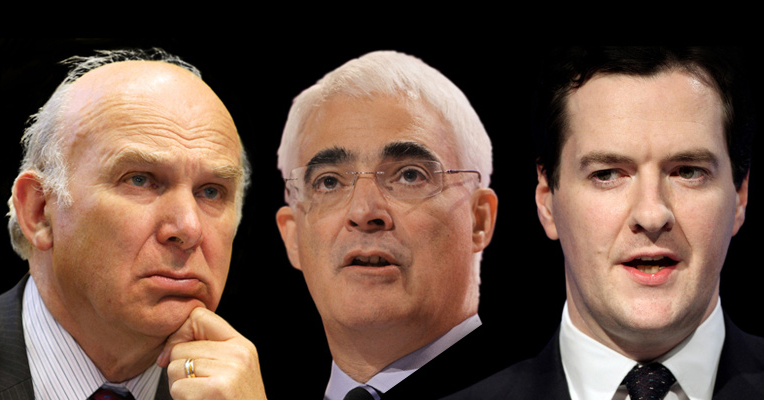Shadow chancellor Osborne repeated Conservative leader David Cameron’s post-Budget claim that Labour had stolen the Tories’ idea to scrap Stamp Duty for first-time buyers below a £250,000 threshold.
Earlier in the debate, the chancellors talked about working more closely together on economic issues. Darling joked the Government’s Stamp Duty plans, announced in last week’s Budget, were in this spirit of this consensus.
Liberal Democrat shadow chancellor Vince Cable appeared to win over the studio audience and received the biggest cheer of the night when he accused the Tories of wanting another shot in Government to “reward their rich backers”.
He also added some much needed colour to the debate by saying the country must be prepared to tax the most wealthy and should not be held hostage by “pin-striped Scargills” threatening to leave the country.
Support by the audience for Chancellor Darling and the Shadow Chancellor appeared more muted but there were nods of agreement from the audience when Osborne talked about introducing a bank tax sooner rather than later.
One area of heated debate came on long term care when Darling appeared to backtrack on the introduction of a 10% ‘death tax’, first denying it would be proposed and then saying it was an ‘option’. The Tories have been opposed to the plan saying they would prefer to give people the chance to stay in their own homes.
However, Osborne was forced on the defensive over today’s announcement he would block some of next year’s National Insurance rises and would instead find the funds needed by tackling Government waste.
In reply Darling said: “We are all tackling waste but he is saying reduce national insurance without a single penny in the bank to pay for it. This will mean he has to cut even deeper and put other taxes up.”
The parties also locked horns over how and when to cut the £176bn UK deficit with Darling advocating gradual cuts over four years and Osborne saying reductions would be made by the Tories as soon as they entered power.
Osborne said: “It is easier to deal with debt earlier on and I do not think people would want a new Government not to make any moves on our enormous national debt for another eleven months.
In response, Darling said Osborne was taking a ‘terrible risk with the economy’ by proposing making cuts so early.
On reforming the banking sector, Cable and Osborne both proposed splitting up the banks and separating “traditional lending functions from the casino operations” of the investment banking arms.
However, Darling argued the conventional lenders such as Northern Rock and Bradford and Bingley had been just as badly hit during the crisis and the focus should be on ensuring the whole system was properly regulated here and abroad.
There was also disagreement over Osborne’s plans to introduce a banking tax, with Darling arguing international agreement should be obtained before it is introduced.
On pensions, the spokesmen did agree there should be more cross-party concensus on policy and reforms to public and private schemes.
Overall, all three candidates seemed relatively unfazed by the cameras although Osborne appeared to be pushed into a defensive position more frequently than his opponents.
David Cameron’s name was frequently used by Osborne, who also seemed to adopt some of his leader’s turn of phrase, but prime minister Gordon Brown and Liberal Democrat leader Nick Clegg were barely mentioned during the debate.
















